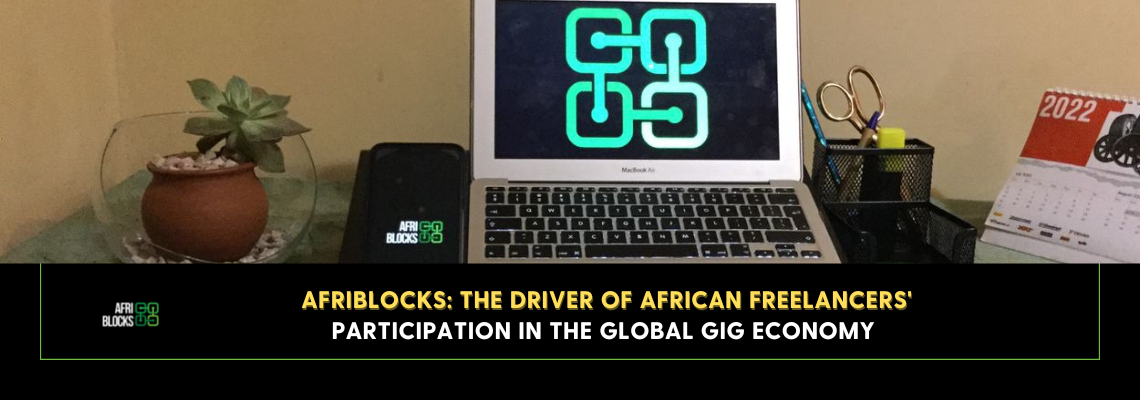
AfriBlocks Network
The continued growth of the gig economy has created discourse around this method of work. There is an increase in the number of companies that prefer gig workers while freelance workers seeking these gigs are also on the rise. The gig economy is sprouting in several industries as more people seek an alternative to the traditional 9-5 work setup.
What is the gig economy?
Simply put, the gig economy is characterized by short-term, on-demand contracts that are skilled-based. These contracts are put out according to the immediate demands of the organization or individual that is hiring. The professional that is hired to fulfill the needs of the contract will have the skills that are needed to complete the job as quickly as possible.
Professionals that offer their skills in the gig economy often handle multiple contracts at the same time. These individuals will be selling their skill sets where they are needed and if they have the time to add more contracts to their current schedule, they are able to do so.
Advantages of the gig economy
Cost-effectiveness – the gig economy allows those who are hiring to pay for the exact service that they need and nothing more. This is especially beneficial to startups and small businesses that may not have the budget to hire permanent employees for some services that can then be hired as and when they are needed.
Flexibility – professionals that sell their skills in a gig economy have flexibility in terms of the projects they can work on, working hours, where they can work from (in most cases), and the personal time they get. This flexibility creates happier and more satisfied professionals.
Services are always available – the structure of gig employment allows potential employers to have access to around-the-clock services. Many of the platforms through which freelance professionals find work allow 24/7 availability. This allows the exchange of services to happen at any time. This also means that a business can run around the clock if it hires individuals in a different time zone.
Disadvantages of the gig economy
Always hunting for the next gig – freelance workers often have to keep a constant lookout for the next available job. This may prove to be stressful and time-consuming for some professionals. The constant hunt for the next job also means that there is very little to no security for a freelancer with regard to how they earn. There are no guarantees that one can earn enough to cover their monthly needs.
Legal challenges – the setup of gig employment may come with legal challenges should disputes arise. The contracts that are provided to gig employees often have loopholes that can be easily exploited. These challenges also arise when the employer and employee are located in different parts of the world where legal systems differ.
No benefits – permanent employment contracts come with various benefits that are provided by the employer. These benefits are part of the contract that is given to a professional. In a freelance setup, employees do not have access to these benefits which leaves them vulnerable. It also absolves employers from their obligations toward their staff.
Imbalance of financial benefit – one of the major arguments against the gig economy is that its financial benefits are skewed towards those that hire freelance workers. Gig employees do not get to reap the financial rewards that come with the system. This imbalance leaves freelancers at risk of exploitation as companies seek to maximize their profits.
In a world where professionals are looking to have more control over their time and the kind of work that they do, the gig economy provides a route through which they can have this control. Small businesses and startups can benefit from hiring critical services as and when they need them instead of offering long-term contracts that they may not afford. Freelancers need to be offered more legal protection so that they are not exploited.









